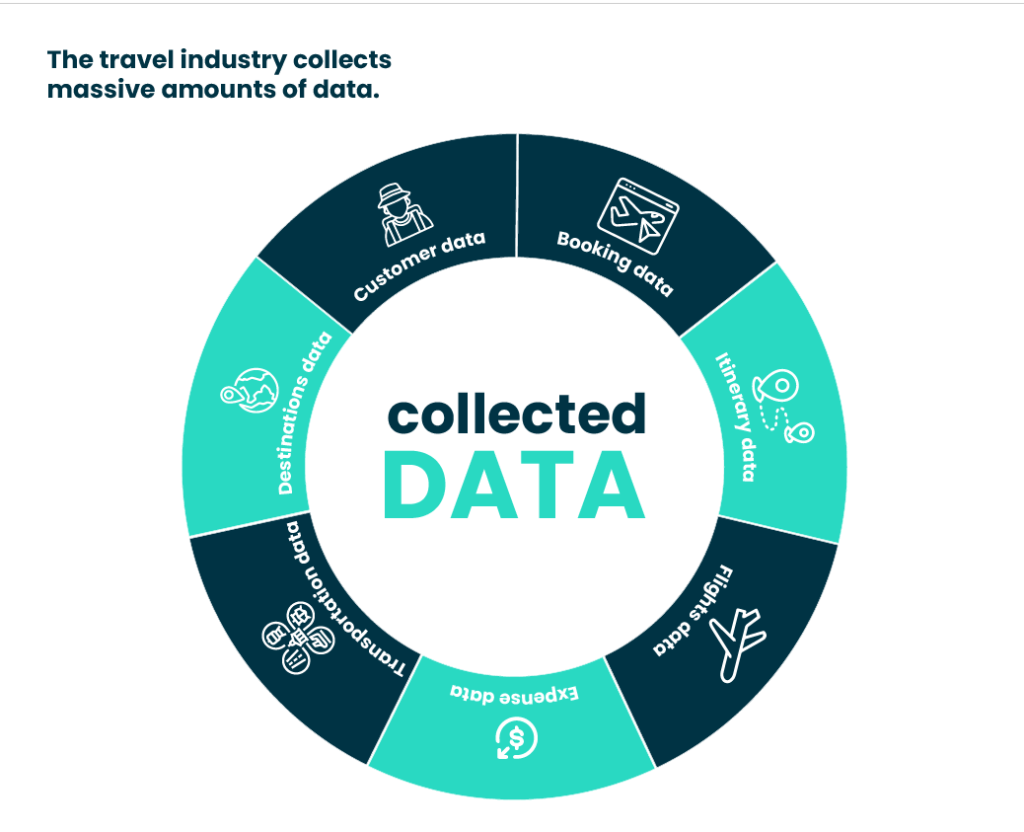The Ultimate Guide for Travel Data Management: Best Practices & More
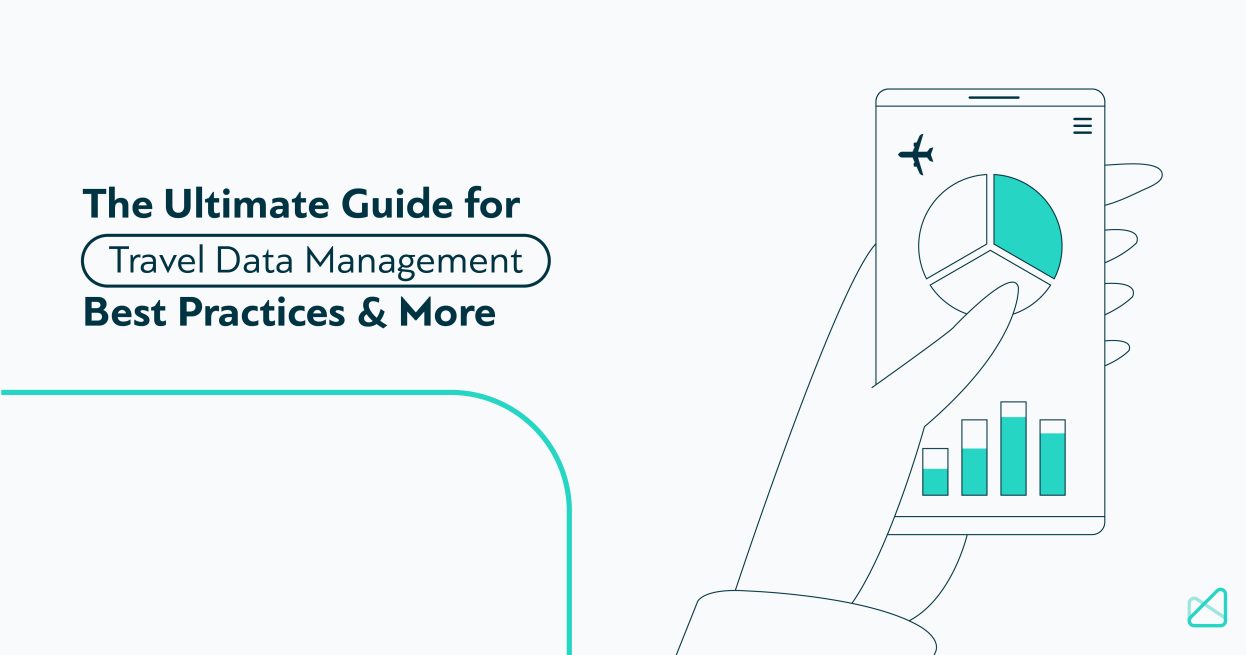
As data becomes increasingly important across verticals, it’s essential to understand its role in the travel industry. Most importantly, understand how to leverage it to make informed business decisions and improve your internal processes and travel experience. After all, data will play a pivotal role in helping the tourism sector’s market volume reach $992.10bn by 2026.
It all starts with effective travel data management, which refers to your process of tracking, recording, storing, and organizing the data created and collected by your travel business.
The benefits of excelling at travel data management include improved business decision-making, efficient marketing campaigns, reduced operating costs and improved expense management, better-optimized processes, and ultimately increased profits.
Let’s see how you can unlock all these benefits learned from the best travel data management case studies in the tourism industry. However, before we go to case studies, let’s learn about the different types of travel data your organization collects and how you can improve your data collection and organization efforts.
Types of travel data
Talking about travel data management without pinpointing travel data types provides little to no value. You must be able to identify the travel data types you want to manage efficiently and decide how you want to use each one of them.
One of the main challenges of travel data management is that the travel industry collects massive amounts of data. It also comes from a variety of sources and through different data pipelines. The Big Data in the travel sector typically includes:
- Booking data – While booking data is a vast concept and rather hard to define, it generally refers to all the travelers’ data contained in the CRS. It can include a guest name, billing information, address, travel agent, rates, arrival & departure info, and stay information;
- Itinerary data – An itinerary data set can contain automated and manual data entries, including air and hotel data, dining reservations, ground transportation, planned routes, tasks for a trip, events, and to what extent each item across itineraries is popular (booking frequency);
- Expense data – Expense data includes all the expenses of doing business as a travel business. It can consist of all commission rates by each one of your suppliers, office costs, costs associated with maintaining your digital platforms and communication channels, and payroll expenses;
- Flights data – Flights data includes all flights provided by your selected airline suppliers. It can contain schedule data and other flight content such as departure and arrivals, patterns in booked flights, and missed flights;
- Destinations data – Destinations data contains essential information on destinations in your current offer. It can have destination performance data to help you pinpoint the most popular destinations and destinations where tourists spend more time, destination weather data, and currency fluctuations data;
- Transportation data – Transportation data includes all the information your business accumulated on all transportation options in your offer – their performance, popularity, missed flights data, costs, and so on;
- Customer data – your customer dataset includes a wide range of data entries usually stored in your CRM. It can include customer names, addresses, demographics, transportation, package & amenities preferences, past travel history with your brand, and so on.
Some of this data can be unstructured in free form or structured and ready to use in relevant fields and records. Travel data management can help you better structure your data, screen it for errors, and get it ready for use for analytics.
Best practices for organizing and tracking travel-related data
When it comes to best practices for organizing and tracking travel-related data, the best thing you can do for your travel business is to standardize these procedures. Here are a couple of things that you should standardize first:
- Data quality – which criteria your data needs to meet before you can use it to fuel business decisions or offer personalization;
- Data quantity – the more data you have, the better. You should set a minimum threshold for your data quantity so you can make sound business decisions;
- Real-time access – you need access to your data on demand as it can help you identify trends and opportunities so you can fuel your immediate business decisions;
- Data warehouse – you also need to dedicate one central storage for your data to avoid breaking data in silos;
- Data monitoring – finally, you need to be able to monitor your data around the clock to measure your KPIs and make changes as you go.
Here are some of the approaches to tracking travel-related data.
Data management systems
You can put all data management systems in the travel sector into three categories – manual, spreadsheet-based, and specialized software systems. Let’s quickly take a look at each one of them.
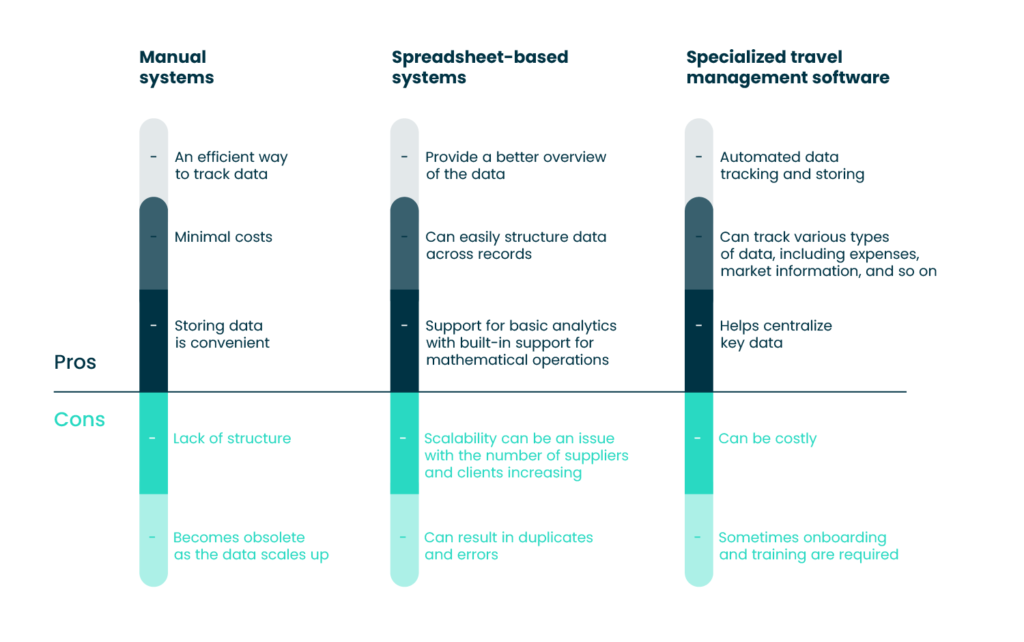
Manual systems
It’s not uncommon to see small travel agencies and novice travel agents using manual systems to track and record travel-related data. These systems can include tables in Word, email correspondence, and
storing important data on local drives and thumb drives.
Pros
- An efficient way to track data
- Minimal costs
- Storing data is convenient
Cons
- Lack of structure
- Becomes obsolete as the data scales up
Spreadsheet-based systems
Spreadsheet-based systems are more advanced than manual systems. They refer to any type of Excel-like software used in travel-related data tracking and organizing. You can use these systems on-premises or in the cloud thanks to solutions such as Google Sheets and Office 365.
Pros
- Provide a better overview of the data
- Can easily structure data across records
- Support for basic analytics with built-in support for mathematical operations
Cons
- Scalability can be an issue with the number of suppliers and clients increasing
- Can result in duplicates and errors
Specialized travel management software
Finally, we have specialized travel management software built to facilitate and automate several processes that travel agencies manage on a day-to-day basis. These platforms can be set up to automatically track and organize travel-related data.
Pros
- Automated data tracking and storing
- Can track various types of data, including expenses, market information, and so on
- Helps centralize key data
Cons
- Can be costly
- Sometimes onboarding and training are required
Data security and privacy
Modern travelers are aware of the risks of sharing their sensitive data. In fact, 81% of them believe the potential risks of sharing their data outweigh the benefits it unlocks for them. As a travel business that collects and processes travel data, you need to address issues related to data security.
More importantly, you must communicate your practices and security measures to potential customers to instill trust and generate business. There are many things you can do, including using state-of-the-art firewalls and antivirus, training your employees on best cyber security practices, encrypting data, and never sharing it with 3rd party companies.
Furthermore, you must ensure compliance with relevant laws and regulations, such as GDPR in the EU and CCPA in the US.
Travel industry experts
Whenever in doubt, you should broaden your perspective on the subject of travel data management – and what better way to do it than to tune in and find out what experts think about it? Below you can find out what the most prominent names in the travel sector have to say about the key data management trends and most common issues.
Francisco Reverte at Salesforce
Francisco Reverte is a Senior Account Executive for the Tourism industry at Salesforce, actively working on solutions to enable travel companies to efficiently address customer demands. He outlined the abundance of data as the main challenge of good data management in the sector.
Francisco is confident that the solution lies in solutions that can go through the data at scale faster than human workers. “New technologies like Big Data or Artificial Intelligence (AI) are the future of the platforms used for travel data management. Solutions powered by emerging technologies can help travel brands get to know their customers better, boost customer loyalty, and increase profitability,” Reverte explained.
Ignacio Ochoa at Iberostar Group Hotels & Resorts
Ignacio Ochoa is currently eCommerce and Online Marketing Director at Iberostar Group Hotels & Resorts. Iberostar currently manages the hotel chain consisting of 114 properties around the globe. According to him, the biggest challenge of travel data management is leveraging all visitors’ touch points with the brand to create personalized customer experiences.
“We seek a fully-optimized experience for every customer on every device, whether it be on a website adapted to desktop and mobile, as well as assisted sales services and the contact center,” Ochoa elaborated. In his efforts to help the chain improve visitors’ experience, Ochoa suggested they start using Google’s G Suite as it not only streamlines data management but also enables the brand to step up its ongoing digitization process.
Stephen Lan at Amperity
Stephen Lan is a Director of Product Marketing at Amperity, a customer data platform. His years-long experience in the field makes him firmly believe that the biggest challenge of bullet-proof travel data management is working with data in silos instead of having a single data warehouse. It can lead to errors as data in silos can contain duplicates, incomplete profiles, and outdated information.
“It’s important to have an accurate customer data foundation that will allow you to identify and segment the right customer audiences,” said Stephen. “You’re not going to know the right audience to target until you have a complete customer profile, so it’s important to start by asking questions about what data and sources you need to drive your strategy and business objectives forward.”
That’s why Amperity focuses on developing a customer data platform on Machine Learning and AI able to score data, identify duplicates, and output actionable reports travel companies can use to develop better personalization.
Víctor Mayans at ARTIEM Hotels
Víctor Mayans is Marketing Director of ARTIEM Hotels. He has been working with the brand long enough to highlight the main challenge of travel data management – all your efforts must contribute to collecting high-quality data. Only high-quality data can help a brand stay authentic and consistent across all digital channels and still be able to offer a personalized experience.
“Executing without measuring and improving doesn’t do very much. That’s why integrating measurement tools like Analytics or DataStudio, along with PowerBI that help you control KPIs while integrating them with customer satisfaction and sales metrics, is fundamental,” said Víctor.
According to him, the best way to manage travel data is to invest in a robust CRM that has the capability to collect quality and actionable data.
Case studies
Besides learning from the tourism industry experts and discovering how some brands leverage Big Data and data management to achieve better results, you have other options as well. You can look for travel data management case studies. Or, in other words, see for yourself the exact moves travel businesses make to stay on top of their data management practices and what results they achieve.
With this in mind, we give you four case studies highlighting different travel data management strategies and their outcomes.
Issta’s flight inventory management done right
As one of the prominent OTAs in Israel, Issta had to make its offer comprehensive and diverse. The firm caters to the needs of B2C and B2B companies. Given that the agency has a significant number of subdivisions and interacts with various clients, the information it communicates needs to be on point.
The challenge of doing flight inventory right came from the fact that each of Issta’s divisions had its own list of suppliers. Managing the data in silos that consistently keeps changing is indeed quite a challenge. To overcome it, the company worked with a 3rd party company and had a custom management platform built.
Thanks to the centralized inventory hub and connections with multiple suppliers, Issta drove more direct sales and satisfied quality standards.
Faith Motors replaced papers with a new system
Faith Motors is a booking service provider with a focus on transportation services. However, the company ended up stuck with legacy methods of handling data. The workforce collected and processed data manually, and it was mainly stored in files and stored in cabinets. The company decided to completely digitize its travel data management practices.
By replacing its manual system with the digital one, Faith Motors managed to completely transform its business and how they handle data. They collected data across various channels, structured it, and stored it for later use. The brand delighted clients by providing up-to-date and accurate data. The new system enabled data transparency and helped the company leverage data to deliver personalized offers.
Travelport Digital’s transition to real-time data analytics
To do real-time data analytics, you need to have pristine data management practices. In the travel niche, it means that all data has to meet the standards for structure, be error-free, and be regularly scanned for duplicates and inconsistencies. Achieving all this at scale is particularly challenging because there are many data pipelines to manage.
Travelport Digital, as one of the world’s largest mobile travel technology providers, experienced all of the above challenges on its road to enabling real-time data analytics. They needed a comprehensive platform for travel data management. One that can track and record all travelers’ touch points with the brand, including various travelers’ actions and patterns such as research and booking, ancillary purchases, and itinerary management.
Travelport had a custom solution made. The results are outstanding. Travelport app users can now receive personalized updates and recommendations thanks to real-time clickstream data analysis.
Waterloo travel agency is switching to an internal online travel data management platform
The following case study is of an online travel agency based in Waterloo, Australia. The agency offers various travel packages, including activities, hotels, and flights. The company wanted to have a platform able to process all the contracts with suppliers while storing data on inventory. The only way to achieve this goal was to align with a software company.
The travel agency had a travel data management platform built with extensive inventory management capabilities. Thanks to these capabilities, the agents were able to get access to the accurate and most recent data so they could create travel packages from scratch and use API to publish them across different platforms. As a result, the agency was able to seamlessly stream and manage travel data across 350,000 properties from 12,000 destinations.
Uniglobe’s alliance with Amadeus
One of the benefits of good travel data management is the ability to delight customers with accurate data almost immediately after they take an interest in a travel package or complete booking. However, to do it, you need access to a comprehensive travel management platform with automation capabilities. To achieve it, Uniglobe decided to align with Amadeus, a leading IT provider in the travel industry.
Uniglobe started using Amadeus’s m-Power technology. Thanks to new tech, most data management practices were automated, including informing travelers about trip details the moment they complete the booking. The system automatically registers changes and notifies clients about significant changes to their schedules, thus preventing inconveniences and bringing the travel experience to the next level.
Conclusion
Travel data management is a huge deal in the travel sector. If you do it right, you can leverage the data your business and consumers generate to make smarter business decisions, improve your travel experience, and stand out from the crowd.
When it comes to travel data management, the go-to solutions for many travel companies are data management platforms (DMP) and travel management platforms (TMP). Given that every travel business is unique, you should define your business goals, identify the data that can help you reach them, and custom-tailor your data management practices to bring you closer to those goals.
Subscribe to
our newsletter
Yay! You are now
subscribed to our
newsletter
Mize is the leading hotel booking optimization solution in the world. With over 170 partners using our fintech products, Mize creates new extra profit for the hotel booking industry using its fully automated proprietary technology and has generated hundreds of millions of dollars in revenue across its suite of products for its partners. Mize was founded in 2016 with its headquarters in Tel Aviv and offices worldwide.
Related Posts
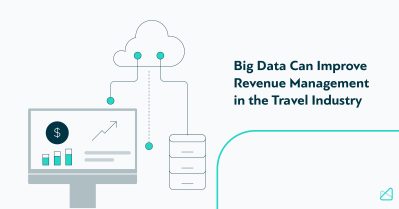
Big Data Can Improve Revenue Management in the Travel Industry
4 min. Big data has become a vital asset in many different industries in recent years. With so many people sharing their information online and platforms logging customer behavior, there’s a need for an efficient way to process all that raw information. The travel industry is no different, as owners and managers are constantly discovering […]
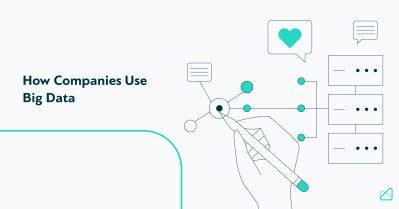
3 Ways How Companies Use Big Data
10 min. “Data is the new soil because, for me, it feels like a fertile, creative medium. Over the years, online, we’ve laid down a huge amount of information and data, and we irrigate it with networks and connectivity.” David Mccandless 2020 statistics reported by bornfight.com show that 90% of the world’s data has been […]
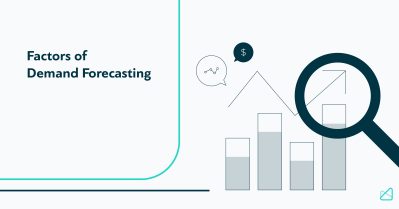
Demand Forecasting: Factors Affecting It, Why It is Important, & More
5 min. Markets of all sizes around the globe are becoming oversaturated. Meanwhile, harsh competition has made them volatile as well. Consumers have access to more information, which tremendously helps them in making the right purchasing decision. All of it makes the future uncertain for businesses. How does a business thrive and achieve objectives in […]
